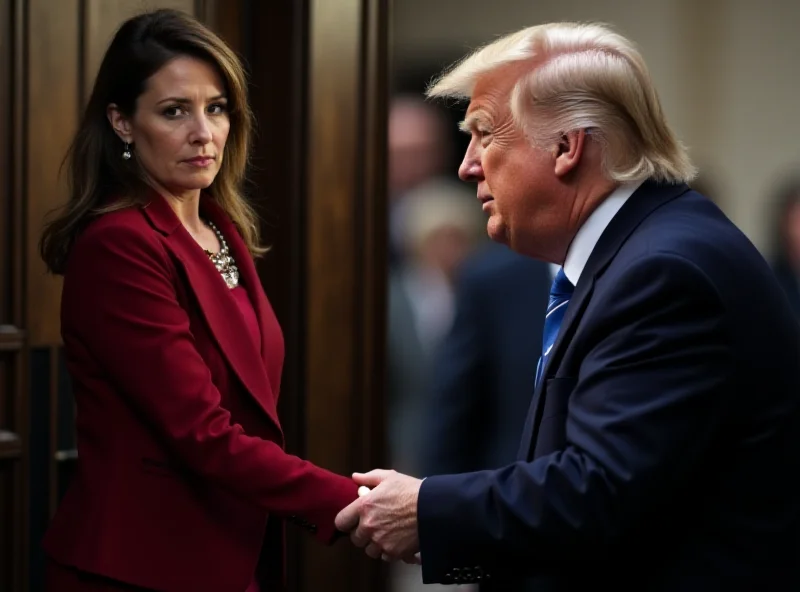The political landscape is constantly shifting, and recent events have brought several key issues to the forefront. From censure votes in Congress to debates over education and international aid, here's a snapshot of the current state of play.
Censure and Controversy in Congress
The House recently voted to censure Representative Al Green (D-Tex) for interrupting President Trump's Joint Address to Congress.  The move has sparked debate, with some colleagues suggesting that further action may be necessary. This highlights the ongoing tensions and divisions within the political sphere.
The move has sparked debate, with some colleagues suggesting that further action may be necessary. This highlights the ongoing tensions and divisions within the political sphere.
"This is a critical time for our nation, and we must hold our elected officials accountable," stated one representative following the vote.
The censure vote underscores the deep partisan divides that continue to shape congressional proceedings. Whether this action will lead to further repercussions remains to be seen, but it certainly reflects the charged atmosphere in Washington.
Trump's Tariffs and Economic Uncertainty
President Trump's approach to tariffs continues to generate uncertainty, both domestically and internationally. Investors reacted negatively to the unpredictability of these policies, sending stock prices down.  The tariffs are not only impacting market conditions but also straining relationships with key allies.
The tariffs are not only impacting market conditions but also straining relationships with key allies.
The concerns stem from the potential impact on the global economy. Experts warn that these tariffs could trigger retaliatory measures, leading to a trade war that would harm businesses and consumers alike. The long-term consequences of these policies are still unfolding, but the initial reaction suggests a growing unease within the financial community.
Education and Political Unity
President Trump's focus on the Education Department has reignited a debate about the role of the federal government in education. This issue has proven to be a surprising point of unity among Republicans, bridging divides within the party.  The debate centers around the extent to which the federal government should be involved in setting educational standards and providing funding for schools.
The debate centers around the extent to which the federal government should be involved in setting educational standards and providing funding for schools.
Proponents of dismantling the Education Department argue that it represents an overreach of federal power and that decisions about education should be made at the state and local levels. Opponents, however, contend that federal oversight is necessary to ensure equal access to quality education for all students.
Resignation and International Relations
On the other side of the Atlantic, Anneliese Dodds resigned over disagreements related to proposed cuts to overseas aid. This highlights internal tensions within the political landscape. Interestingly, her resignation coincides with positive reports about Sir Keir Starmer's talks with President Trump, suggesting a potentially shifting dynamic in international relations.
The contrasting narratives – Dodds' resignation and Starmer's successful talks – paint a complex picture of the current political environment. As these events unfold, it will be crucial to monitor their impact on both domestic and international policy.

